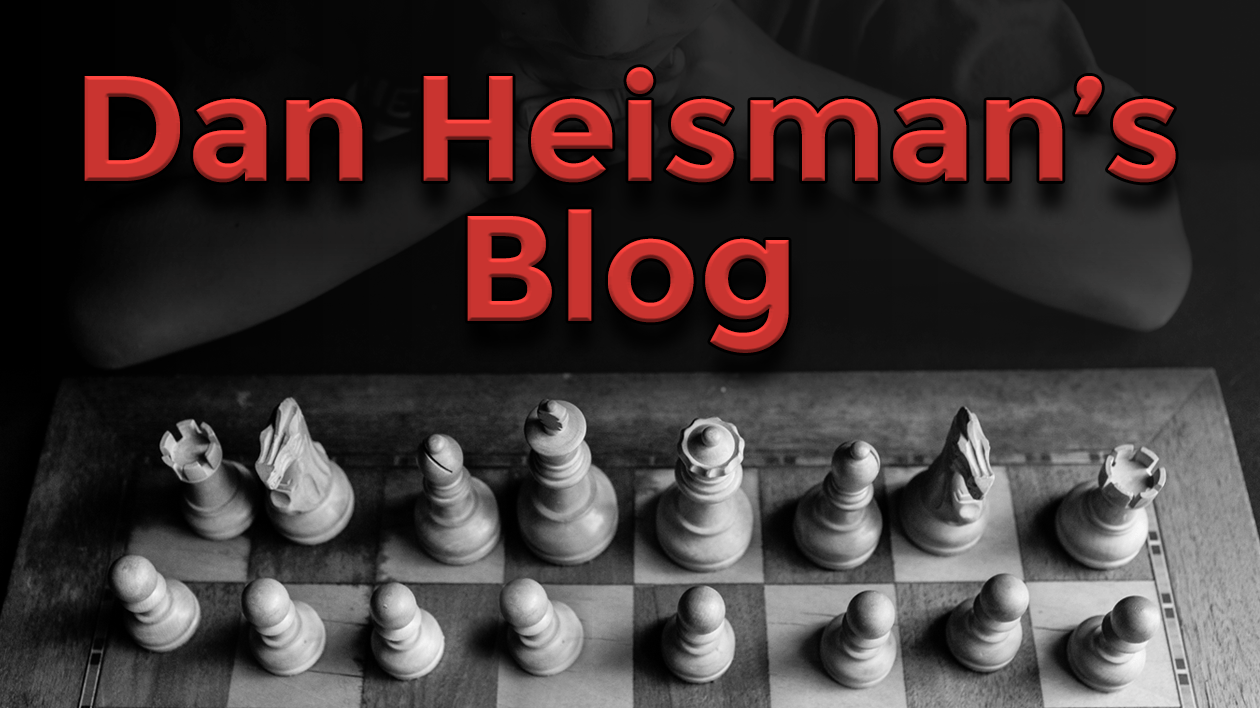
Improving vs. Maximizing Performance
As a full-time chess instructor for the past 16 years, I am amazed how many times I run across cases where students don't understand the difference between improving and maximizing performance. Both the end goals and the methods differ greatly, as should the long-term results.
For example, suppose a 1400 player comes to me and says "I am going to play in the World Open next month. I want you to train me so I can do the best possible." That's a legitimate request, but a different one than a chess instructor normally gets. This student isn't really asking me to make him better, but he wants to maximize his performance rating for one event. So I can give him tips like brushing up on his tabiyas, choosing openings that most fit his strengths, , reviewing common tactical patterns, getting lots of rest, how to eat well during games, psychological tips on playing in a high tension event, how to handle losses, whether to take a mid-event bye to maximize strength in a nine-round event, etc.
But while some of these actions may also stick in the long run to also provide improvement (basic tactics is one), others are not necessarily as helpful. In particular, let's examine "Choose openings that play to your strengths".
What could be more reasonable than that? Everyone wants to play to their strengths. However, whereas a 2300 master who is trying to win an event and not trying to improve wants to pick openings that maximize his strengths and minimizes his weaknesses, a 1400 who wants to improve (as opposed to do well at the World Open) but who takes conscious action to avoid his weaknesses is not going to improve on these weaknesses as quickly.
Everyone knows that tactics and safety are the main issues in chess, but many that want to improve but aren't that good at analysis and calculation yet try to avoid complicated games with openings like the Colle or the King's Indian Attack.
If you are really trying to improve, there's two problems with this "avoid the analytical weakness" approach:
- Any opening can become tactical if the combatants choose sharp lines, so picking "positional" openings, especially if you are an inexperienced player, only often delays, and not avoids, possible fireworks, and
- Avoiding your weaknesses will not make you better at them! The right way to improve is to meet these important areas head-on by learning how to develop a good thought process for dealing with safety issues. That means seeking out more complex positions and learning how to analyze carefully by playing slowly in long-time control games. The famous advice that beginners should play open games and even gambits is based on this premise, and it's a good one.
So if your long term goal is to become a distinctly better player, next time you contemplate learning an opening because "it fits your style" you should also ask if that's really what you want to do. Because if you are not already a strong player, maybe your "style" is not that important and the real issue should be how you can maximize your learning/improvement. This in turn might involve knowing how to play as many different types of positions as possible and developing a better ability to carefully analyze critical and complex positions. These are the type of actions that, in the long run, should help you become a better player.